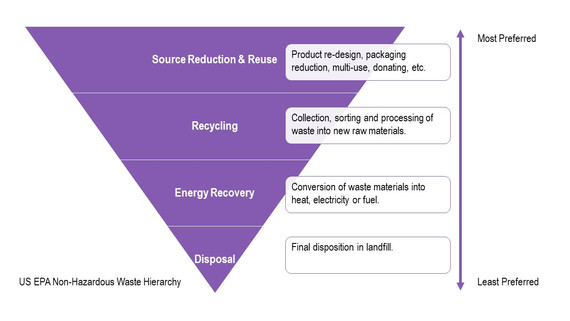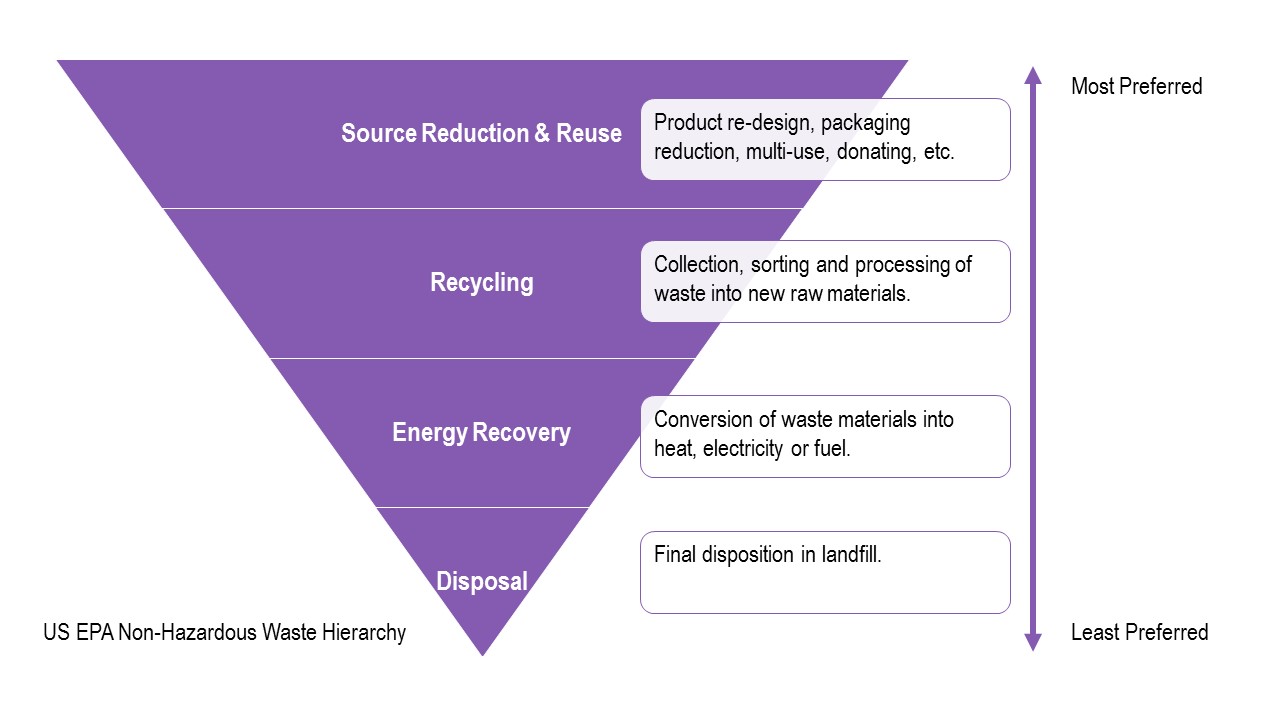Non-regulated mixed plastic waste represents a large portion of the solid waste generated by healthcare facilities. Healthcare waste management decision makers and influencers must choose from a number of disposal options to deal with this growing environmental burden.
To aid in this process, HPRC conducted a literature review of life cycle assessment (LCA) studies comparing the environmental impacts of recycling to other waste management options. The final paper presents the different types of waste management for plastics along with their advantages and disadvantages from an environmental perspective.
The studies conclude that in most cases mechanical recycling of waste plastics has less environmental impact than alternative disposal methods. Tables are provided to help readers apply the results to their own disposal requirements. Options reviewed included mechanical recycling, feedstock recycling, incineration with energy recovery, and engineered landfills. The literature survey also highlights the need for additional LCA studies that are specific to the unique needs and constraints within the healthcare industry for various regions.
Given the complex landscape of waste management options, HPRC is committed to understanding how recycling fits into the larger context of waste management options and whether and when advancing recycling makes sense from an environmental perspective.


